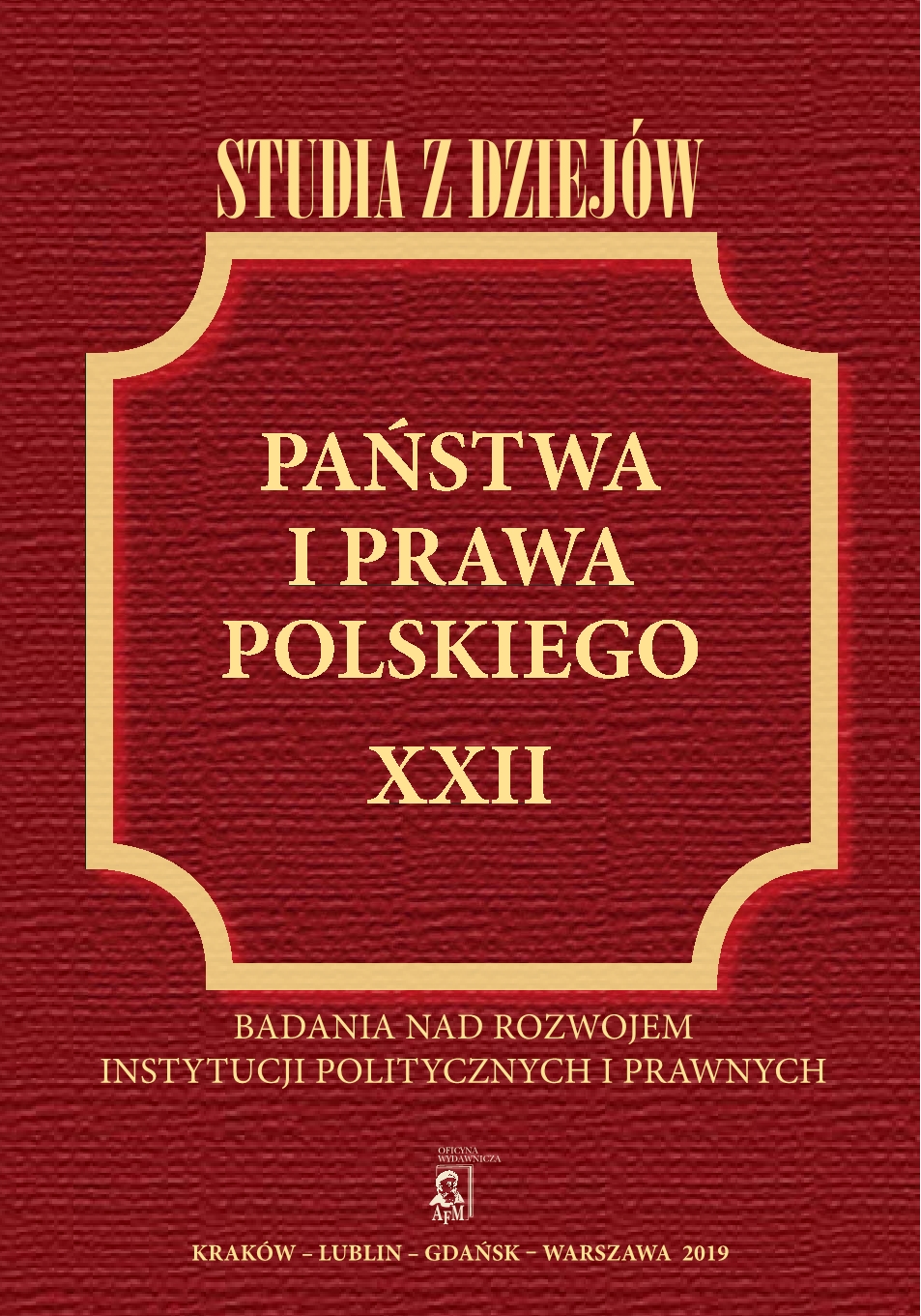Rozkwit doktryny prawa karnego w Polsce w dwudziestoleciu międzywojennym – ośrodki, uczeni, idee
The great age of the criminal law doctrine in Poland between the two World Wars – centres, scholars, ideas
Author(s): Danuta JanickaSubject(s): History of Law, Criminal Law, Interwar Period (1920 - 1939), Philosophy of Law
Published by: Oficyna Wydawnicza AFM Uniwersytetu Andrzeja Frycza Modrzewskiego w Krakowie
Keywords: legal history; the Second Polish Republic; criminal law of 20th century; history of criminal law science; penalties; safety measures; juvenile criminal law; administrative offences law;
Summary/Abstract: The interwar period was marked by a significant growth of the criminal law doctrine in Poland. Along with senior academics – professors Krzymuski and Miklaszewski, an extensive research was developed by the representatives of the younger generation, including professors Makarewicz, Makowski, Mogilnicki and Rappaport, and the representatives of the new generation, among those the most prominent were professors: Wolter, Śliwiński, Glaser, Wróblewski, Radzinowicz, Papierkowski, Świda and others. Five university law faculties – in Warsaw, Cracow, Lviv, Vilnius and Poznań – were the most important Polish criminal law centres. The Polish scholars undertook all the fundamental and current issues regarding penal studies in a whole, including criminology and penal policy, which were structuralizing at the time. The theories and ideas presented by them corresponded to the modern European and global trends. Numerous enlightened conceptions of the Polish scholars were realised in the criminal code, administrative offences law, prison act and other legal acts. The original and modern juvenile law created in the interwar period, which was constituted in adequate sections of the criminal code and the code of penal proceedings, deserves a particularly high grade.
Journal: Studia z Dziejów Państwa i Prawa
- Issue Year: XXII/2019
- Issue No: 1
- Page Range: 185-208
- Page Count: 24
- Language: Polish

